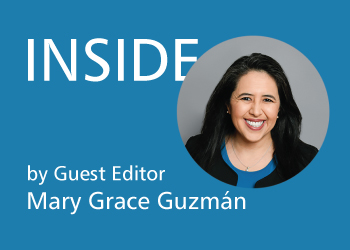
INSIDE: Access to Justice
Often Access to Justice evokes discussions of how our legal community can better serve the legal needs of indigent individuals. Discussions of access often include statistics of how groups are underserved with some suggestions for improving access. The conversation often focuses on those who live at or below the poverty line and how to serve them. While access to justice is a significant issue for people struggling with poverty, this issue impacts middle-income earners too. The ability for a middle-income earner to fully fund their legal needs can be at the very least daunting, if not cost-prohibitive.
When tasked with curating this edition of Contra Costa Lawyer Magazine, my goal was to shift the conversation of Access to Justice to consider the needs of middle-income earners and offer readers practical solutions to this problem. Along with focusing on middle-income earners, this edition emphasizes creative solutions to providing access to justice, including considerations of technology and our court system.
The authors in this issue met the challenge of writing about access to justice and offered creative and, sometimes, real-life experiences in expanding access to justice. While each of the authors expressed empathy for the issue of access to justice, they also expressed concerns that writing about access to justice for middle-income earners is a complex subject. Yet each author ran with the broad topic and wrote unique and informative articles on the subject.
Indy Colbath interviewed Judge Danielle Douglas and Commissioner Christine Donovan, who discussed the challenges and positive impact of technology and Zoom hearings in family law court. Mika Domingo discusses cultural competency and serving people of color in estate planning. Christina Weed addresses the challenges of joint representation of married couples in business and tax controversies. Robert Jacobs explores low-cost alternative dispute resolution and mediation services within the greater bay area. Theresa Hurley provides an article on the CCCBA’s Lawyer Referral Service and how it meets middle-income earners’ needs. Finally, Andrew Gabriel discusses landlord-tenant issues that he has worked on as a member of the Lawyer Referral Service.
Finally, I would like to thank each of the authors for agreeing to write on a complicated subject and presenting creative solutions to a significant problem facing many middle-income earners. I also want to say a special thank you to Carole Lucido, who patiently worked with me, and the Contra Costa Lawyer Editorial Board for its assistance in helping me identify authors and a theme for this edition.